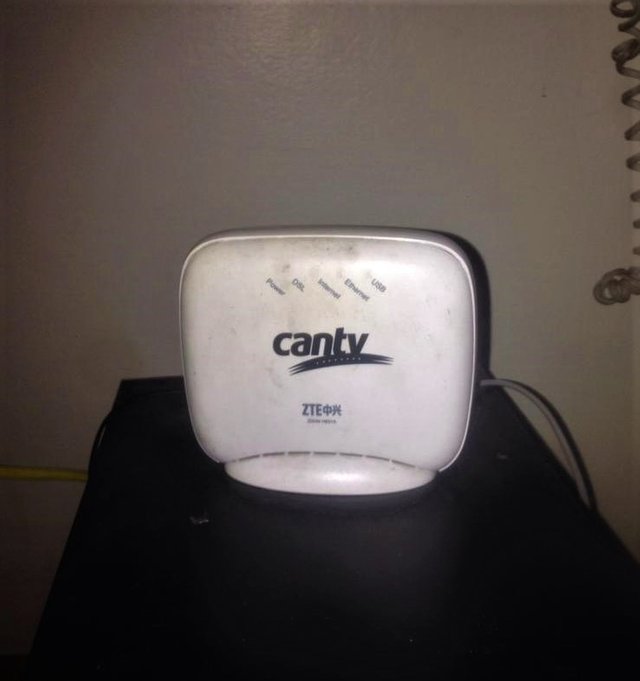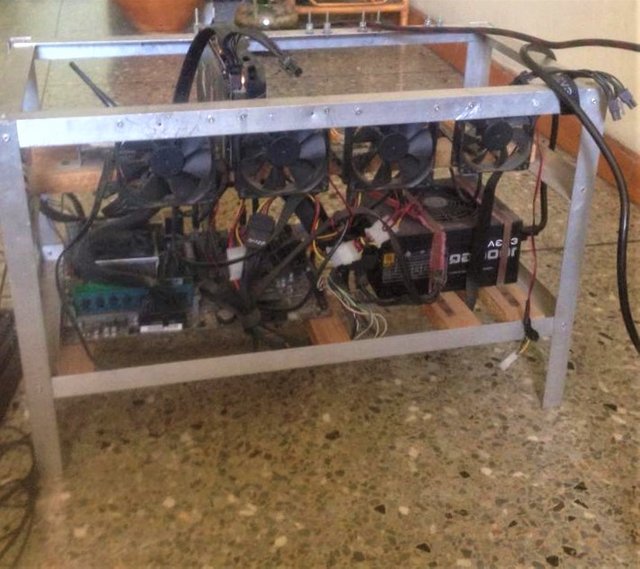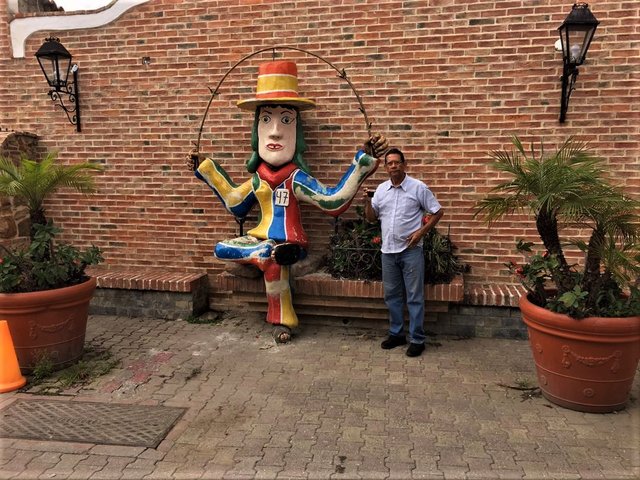Best regards from Venezuela.
This is my contribution and my point of view to participate in:

Venezuela is one of the most contradictory countries in the world.
.jpg)
National flower of Venezuela, Cattleya mossiae, orchid or May flower.
Twenty years ago it looked as one of the most important development poles in Latin America.
Today, it is mired in a deep political, economic and social crisis.
My country, Venezuela, has an enviable geographical location. It is located north of South America, with access to the world by air, sea and land.

In addition, it has sufficient renewable and non-renewable natural resources to guarantee its citizens access to all the technology available in the world.
Its young population is around 60 percent of the thirty million inhabitants.
It is very well known that young people are the most willing to handle new technologies.
yet, It is a responsability of the Venezuelan state to promote this meeting, among its youngest population and the new technologies, in its most diverse manifestations.
Not much time has pased, from the moment when I heard a rather striking cliché: "You are a technological illiterate."
And they weren't referring to me, I'm already over sixty years old.
They were referring to all those citizens deprived of the right to navigate the highway of the world information network.
Of course, it is the Venezuelan state, who is responsible for educating its citizens.
That must be a state policy.

The state company CANTV, has a monopoly on telecommunications and the internet.
But this is not the case in Venezuela.
Partisan politics prevails here.
In an moment, the government tends to technological development. And suddenly, it blocks many websites.
Such is the case of: Dolartoday, and all those who talk about the parallel dollar market.
It also happened with informative websites, to try to hide the truth. Thus they blocked La patilla, NTN24, sunoticiero.com, and then, it was the turn of channels like Antena3, from Spain.
.jpg)
Image taken from the home page of the NTN24 news portal
All to avoid a free world, with access to the truth and with the possibility of contributing to the technological development of the country.
To know more click hereDale click aqui.
At the end of 2019, under the requirement of the human rights commissioner, some of those signals, once blocked, have been restored.
The Venezuelan government set a very precise guideline, when on December 23, 2004, it issued decree 3390, published in the official Gazette No. 38.095 dated 12/28/2004.
Here preference is given to the use of free software over proprietary software.
It was established that in 24 months all public administration should be governed by open standards free software.
Subsequently, it was established that the agencies and entities of the national public administration of the Bolivarian Republic of Venezuela should use Canaima GNU / Linux as a computer program for their workstations, according to the official gazette number 39.633 dated Monday, March 14.
Even this measure has not materialized throughout the public administration and it seems that they forgot that more than half of the country lacks access to the Internet.
Since October 18, 2007, the use of Canaima GNU / Linux has become frequent in Venezuelan public schools, as it was used in the "Canaima Educational" Project, which sought to provide more than 4,000,000 students, children in school age with Magallanes laptops, from Portugal technology.
.jpeg)
On May 4, 2009, during an address, President Chavez makes the official launch of the Canaimite system, mini portable laptops, to be used in primary education.
.jpeg)
So far everything was very commendable.
Then the contradictions followed.
Some of the information contained in the "mini laptop" Canaima had indoctrinating purposes.
Government corruption caused that this mini laptops to fall into the hands of unscrupulous beings, who gave them commercial use, to state assets.
In some occasion, I saw that the Canaimita computer was an excellent tool for the children of our farmers to overcome this technological illiteracy, which lived in their parents.
I could see, how was the physical connections of the optical fiber wiring networks were made on the roads of my country, so that the internet signal reached the Venezuelan fields. The work remained unfinished.
Again, corruption devoured the good intentions of some politicians.
Canaima computers were left for another use, more mercantilist.
Suddenly, the global trend shifted towards cryptocurrencies.
My thirty-twenty-year-old children began to participate in that technological wave that bitcoin mining brought.
They already had a miner, then another. At first it was one to mine bitcoin, then they switched to etherum.

The Venezuelan government determined that this free activity was risky for its political stability.
Soon they created the mechanisms for its control. The strongest thing was when Cantv and his subsidiary Movilnet manipulated the speed of the data towards the servers and caused the communication to collapse.
.jpeg)
Today, it is very expensive and difficult to access these technological equipment.
Then came two accurate blows: The collapse of the electrical system, due to the lack of proper maintenance and the creation of Petro and the Crypto Superintencence.
The government's hand managed to discourage most miners.
They made a free, independent, universal and reliable activity illegal.
There were arrests, confiscation of technological equipment and abuse of power.
There was generated a military control into the customs that blocked the entry of technological equipment for mining into the country.
The government took control.
They force Venezuelans to keep accounting data in Petros, to invest in Petros and trade in that virtual currency.
Even so, Petro is an entelechy.
.jpg)
Image taken from:
FUENTE
That's how my children and many other Venezuelans lived. In permanent anxiety, for not knowing what the future of the technological trend was.
The freedom granted by the internet allowed them to get involved in the world of the crypto trader.
Many good school work were achieved, thanks to the internet.
Definitely, who does not have access to the web, is at a disadvantage with respect to citizens who can conect freely.
Currently, Venezuela is experiencing a slowdown in its technological capacity, as a result of the lousy electric service and the government's commitment to interfere in the activities of its citizens.
Above all, for trying to isolate ourselves from the more developed western world.
There are already specific cases, such as the intention of the ADOBE company to stop serving in the country.
Other companies are under threat, which could lead to the definitive collapse of information and with it our isolation from the technological world.
Anyone who hears references about our electoral system will imagine that we are a technologically advanced country.
The whole process is automated and the data of the electoral roll are crossed with those of the civil registry.
Voter control is done through a biometric system. The results are expressed through online data.
The internet plays an exceptional role in this whole process.
The government is jealous that everything works perfectly.
It seems that this is beneficial for their electoral and power interests.
He does it carefully.
The other events that involve ordinary citizens, such as the financial system, communication, education and many more, do not concern them.
The services are bad.
.jpeg)
The continuous theft of the cable carry the internet signal forced the neighbors to make homemade alarms
That is why they cause the system to collapse.
He does not want free citizens.
They want MODERN SLAVES, submissive, conformist entities.

Long live the freedom granted by cyberspace.
Ali Riera
All photographs are property of the author and were edited with Pixlr editor.